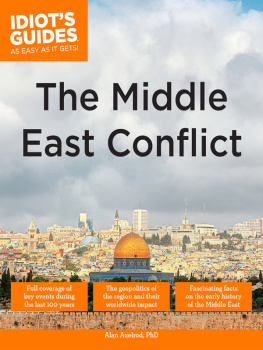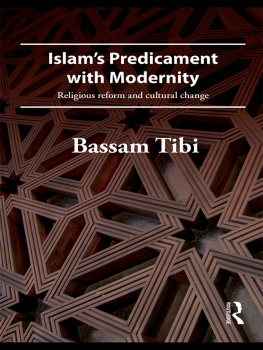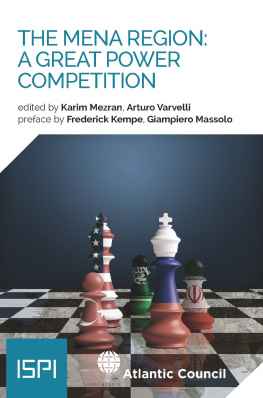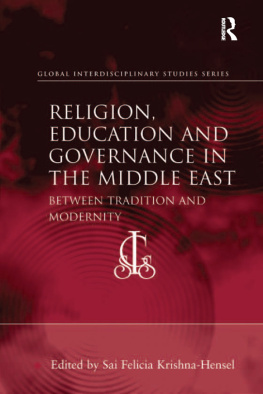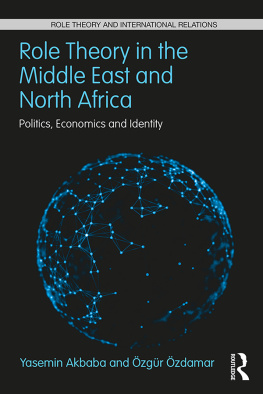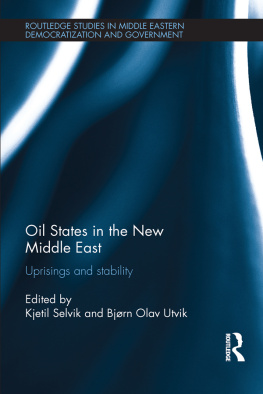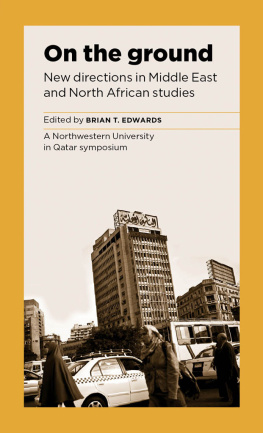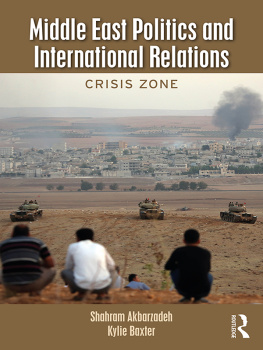Table of Contents
Guide
Towards a Discursive Framework of Change
Behrooz Sabet & Cyrus Rohani
I
AN ACCELERATING CHAIN of social disruptions has permanently changed the fortunes of the Middle East, accentuated by three major events: the Islamic revolution in Iran; the 11 September terrorist attack, triggering the Western invasion of Afghanistan and Iraq; and the uprisings that led to the birth of the Arab Spring. These events have radically destabilised the region, galvanised international tension and widened the fault lines of civilisation to an alarming level. The complex, non-linear and unpredictable challenges that the Middle Eastern societies are now experiencing can hardly be captured or even summarised in one book. To grasp even a rudimentary understanding of what is happening in the Middle East would require an in-depth examination of the foundational issues that constitute its social, economic, political, cultural and religious life. Furthermore, globalisation and matters related to democracy, modernity and the dynamics of social change should also be considered when analysing the events in this volatile region.
The following outline is an attempt to describe the ideas and assumptions that have shaped our conceptual framework, and to summarise the topics, questions and orientations that are integrated into this project. Our conceptual framework has helped us to identify and organise the main challenges of the Middle East, and to establish points of emphasis or areas of concern that must be viewed as a priority. We recognise that the limited number of topics selected for this book fail to cover all the essential areas of study that a project of this magnitude requires; nevertheless, we are hopeful that through ongoing consultation we may be able to expand the breadth and depth of this inquiry.
Challenges vary from one Middle Eastern society to another: variances and commonalities
The formidable geopolitical situation in the Middle East, and its vast cultural ties with the major world religions and civilisations, engenders heightened sensitivity in global affairs. Moreover, the rapid changes that have characterised the region in recent years require the constant review and reconfiguration of old concepts and perceptions. The Middle East stands in the middle of profound waves of change uncommon in history and reminiscent of the totality of social disruptions in Europe over the past 500 years. A brief survey of the events in the Middle East will reveal three distinct layers of sociocultural change: renewed religious friction; the increasing conflict of faith versus reason; and the battle for freedom and a sense of democracy. The resurgence of the contrast of religious impulses, reminiscent of the Reformation, are being played out once more as demonstrated by the conflict between fundamentalists and those who want to bring Islam into the modern age. Social disruption, fuelled by a perceived dichotomy of reason and faith, evokes memories of the Enlightenment; and the recurring revolts for freedom, challenging the authoritarian systems governing the Middle East, are similar to those the modern world went through to recognise and safeguard its political values of democracy.
It is not difficult to see that the Middle East is in a critical period of social change, when values and modes of thinking are experiencing a paradigm shift, creating agonising pain and crisis. The words of former President of the Czech Republic Vclav Havel, while receiving the Liberty Medal at Independence Hall in Philadelphia, may aptly be applied to interpret the events of the Middle East: Many things indicate that we are going through a transitional period, when it seems that something is on the way out and something else is painfully being born. It is as if something were crumbling, decaying and exhausting itself, while something else, still indistinct, were arising from the rubble.
The dynamics of social change in the Middle East have created a dichotomous tension between opposite social forces, pitting one against the other. This pervasive strain can be felt between religion and secularism; tradition and modernity; continuity and novelty; absolutism and relativism; local values and universal values; tribalism and globalism; faith and reason; exclusive and inclusive truths; democracy and theocracy; technology and culture; and in the finality and continuity of religious, social and legal doctrines. These binary oppositions demonstrate the contrasting reflections of cultural and religious fault lines, which can be observed throughout many sociocultural environments. In the Middle East, however, the fault lines have taken a sharp downward turn towards sociocultural turmoil, violence and radicalism.
The Burhan Institute intends to address these binary oppositions as dialectical tensions that inevitably lead to the emergence of a more unifying framework for social transformation. The unfolding of events in the region is interpreted and given context by utilising the logical machinery of dialectical opposition, operating between the opposing social processes of fragmentation and integration. The social processes of integration involve normative premises, beliefs and values that are peace-orientated, progressive and universally accepted by the faith traditions of humanity. Inversely, the social processes of fragmentation include normative premises, beliefs and values that have historically caused division and sectarianism, which have kept the region in stagnation and prevented the Middle East from joining the dynamic forces of modernisation and progress that have characterised the modern world. Our approach contends that the tumultuous collision of fragmentation and integration will inevitably result in a greater awakening, a shift from the current crisis, to the future transformation of the region.
Desired social change
Social change and development must come from within the communities of those who want change, and the desire for change is often generated by crisis itself. At that point, an imperative and earnest search for peace and justice will begin. Furthermore, social change requires integrated, multi-dimensional and interdisciplinary approaches that will take into account all sociocultural, economic and political needs as well as the particular challenges of a country or geopolitical entity. The Middle East needs a sustainable framework for social progress that is both pragmatic and visionary. This framework needs to bridge the gap between a realistic assessment of the present condition, and an attainable future that is devoid of the grandiose sense of global superiority. It is a well-known saying that, where there is no vision, the people perish (Proverbs 29:18); however, traditional milieus such as the Middle East are disproportionately immersed in experiencing the world through supernatural visions and religious orientations. Therefore, a balancing act seems to be in order so that these societies may be able to temper their spiritual vision with the tempo of modern pragmatism and this-worldly orientations.
In the Middle East, there are life-enhancing values that need to be rediscovered; however, a rediscovery of traditional values does not mean a perpetual and obsessive return to the past. Social progress involves continuous change and flux. On the one hand, societies are the product of history and tradition; and on the other hand, they hold the potential for change and future possibilities. Likewise, history and traditions comprise the collective memory of the Middle East; and since societies cannot perpetually dwell in the past, the Middle Eastern nations would do well to unseal and demythologise their repository of past experiences, and re-examine its content with ongoing processes of critical thinking, problem solving and creativity. That is to say, traditional patterns of behaviour need to be continually modified to reflect constructive accommodations to the dynamics of sociocultural change; otherwise, without modification and refinement, they will crystallise into stagnant and dysfunctional dogmas.
Next page


